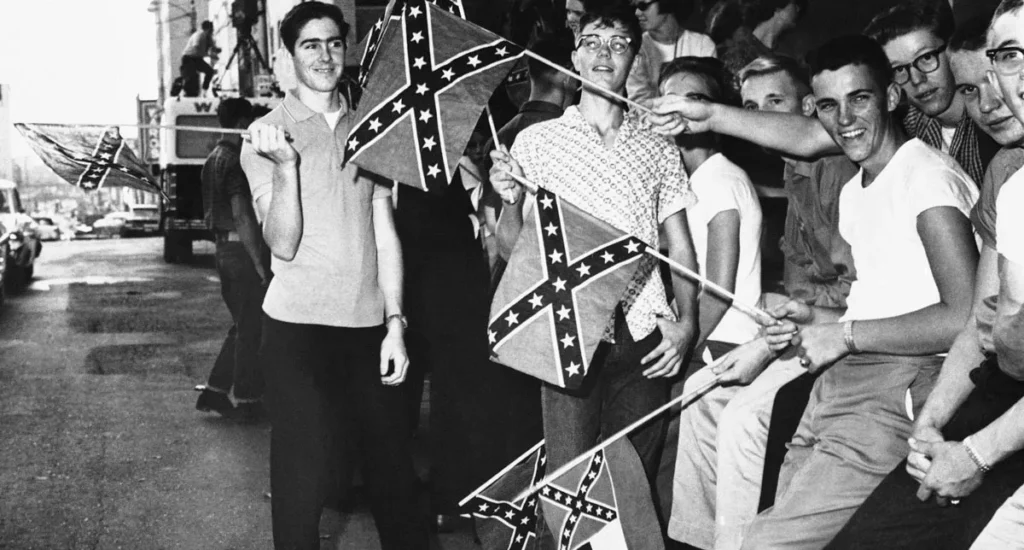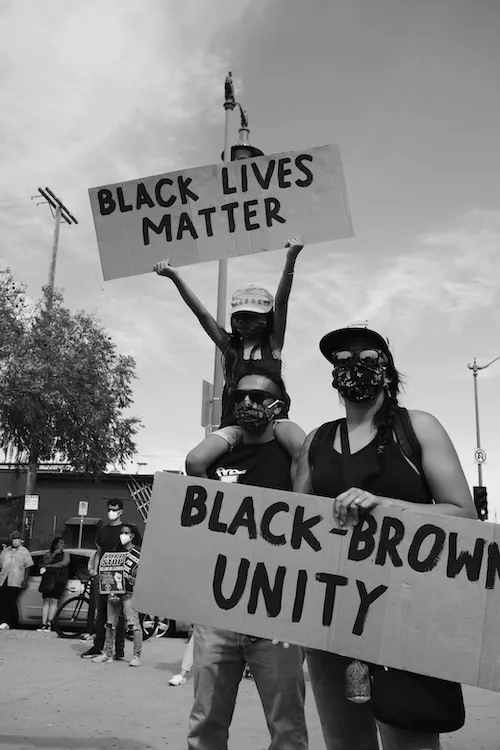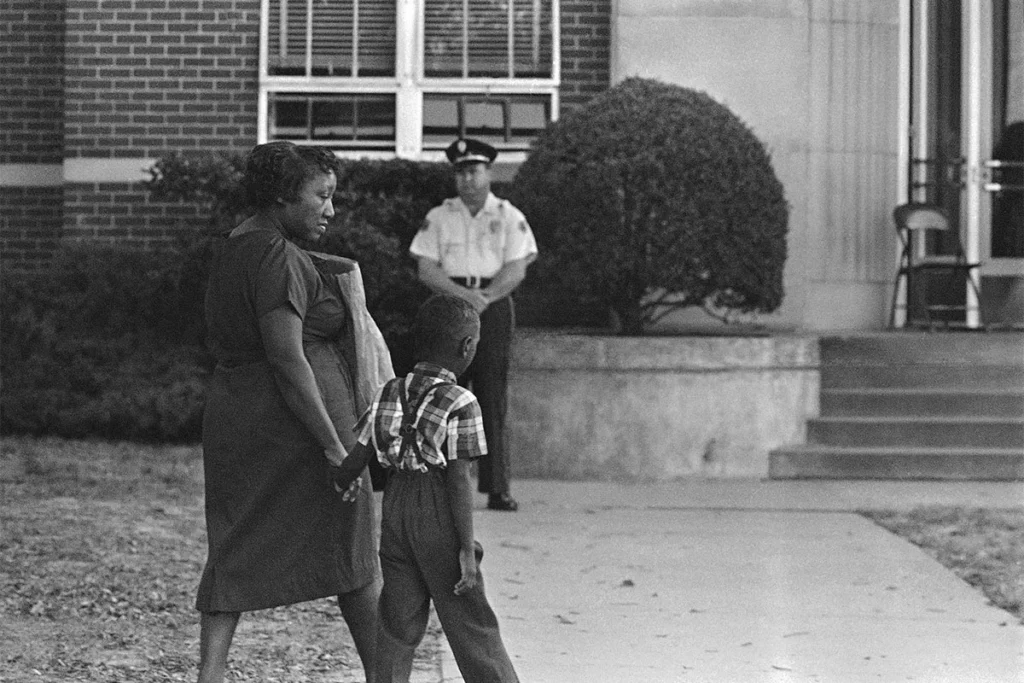“Shaming is one of the deepest tools of imperialist, white supremacist, capitalist patriarchy because shame produces trauma and trauma often produces paralysis.“
—bell hooks
I am no stranger to shame. I was fired from my role as principal. Honestly, I was asked not to return at the end of a school year. Those behind the decision made up a couple erroneous reasons, but at its heart the decision was made because I had fallen out of favor with senior leadership and stood against harmful practices they were committing. So, I was forced to resign. I was told that I needed to publicly make statements to my school-based leadership team and teaching staff, and instead of the truth, I would be allowed to tell them that the organization and I had mutually agreed to part ways.
Understand that not all of the antagonists which acted against me identified as white people. Having a white racial identity does not necessarily condemn someone to acting out white supremacy; nor does the absence of white racial identity exempt you from perpetrating racist actions. In my life, I’ve learned that white supremacy stings the most when it is spewed from Black lips.

In this undated photo, hundreds of rebel Battle flags lined the sidewalk around the Governor’s Mansion in Jackson, Miss., showcasing the tension of white resistance during the fight for racial integration in the 1960s. (AP Photo)
Previously, I had filed a human-resources grievance, claiming racial discrimination against my direct manager. The senior leadership and CEO of this organization thought it best for me to give these public statements alongside the same person I filed the grievance against. To add to my shame, after communicating my departure to my staff and school leaders, I was made to communicate it to my fellow principals. Lastly, this manager sent an email to certain leaders throughout the organization stating my departure. All of these meetings and this email happened on the same day. I can only imagine that the shame of this professional lynching was suppose to accomplish what historically lynchings have always endeavored to accomplish—to remove the voice of an apparently problematic Black man, and to generate fear in others.
Recognizing your own power is not the same thing as trying to assert your perfection. I wasn’t a perfect principal nor a perfect educator. I made mistakes while striving to achieve. Nevertheless, I led my school to repeat success and the highest recognition it had ever received in terms of state accountability.
Whiteness Is an Opponent to Black Liberation
“Sometimes people try to destroy you, precisely because they recognize your power not because they don’t see it, but because they see it and they don’t want it to exist.”
—bell hooks
The pursuit of purpose is harrowing. We destroy and rebuild ourselves. We paint the chambers of our hearts with the pallet of our experiences. We rinse and repeat until we arrive at a knowing; a knowing that the things we are doing are exactly what we were created to do. There are even moments in which we feel a touch of divine grace as we watch ourselves operating in our purpose. We think, “This is it; if I could do this every day forever, I would.”
Then life sends an obstacle. Uninterrupted happiness is an illusion. Our perception of circumstances often governs a temporary state of happiness. So, predictably things go wrong. People begin to stand in your way. It’s their choice and often their problem, but sometimes their misunderstanding causes them to oppose you. They don’t know that you’re working in your purpose. They are unaware of what your work truly means.
If you’re a Black educator at a charter school, then you know this reality quite well. Chances are you work in or with schools that are filled predominantly with Black and brown young people. Chances are white people started or run your organization or school district. They may also espouse ideals of equity or anti-racism. However, the true test of this is how they treat Black people who attempt to advance in power while educating their children. To those who adhere to the tenets of racism, sharing power with Black people is beyond unimaginable.
It is also true that the perpetuators of racism, particularly in an educational context, do not need to be white people. Many times, the pursuit of power and influence has caused Black people to perpetrate racism upon each other. Therefore the opponent to Black educators working to liberate Black people is not white people, but whiteness. To be white is to be of value and correct, and to be a Black educator espousing blackness is to be worthless. This means that organizations that practice whiteness must diminish Black thought, intellectualism and leadership out of necessity. It means that for Black people to attain power, they must sacrifice their identity.

“Our Black children deserve to live a life made beautiful by the work you and I do each day.” They deserve to see the world unobstructed by the ideals of white supremacy.”
Photo by Mike Von on Unsplash
The most revolutionary thing you can be, is yourself. There is no easy answer here. If defeating racism and living out your purpose could be achieved easily, there would be no need for encouragement. We must choose to keep our eyes set to the hills, and glue our imagination to a world in which those coming after us can thrive. Our Black children deserve to live a life made beautiful by the work you and I do each day. They deserve to see the world unobstructed by the ideals of white supremacy. They must be equipped to critically examine the world in which they were born, so that they may live above the muck of a racism-defined destiny. Even if we do not want to practice within the confines this society would impose, we must teach them. We must educate them because it is our purpose; A purpose that was passed down to us, and one that we must not drop.
I became a teacher to pour myself into generations of young people who look like me and who, too, must navigate a society built on the blood and bodies of our ancestors. I became an educator because I believe that obstacles to the expression of Black excellence are not larger than the potential of Black people. I became a teacher and principal in the American south because I believe that the legacy of white supremacy existing and running rampant in the South cannot prevail over educated, Black-affirming Black people. Our children need to see themselves reflected in successful Black people.
I didn’t have a Black teacher until I was an adult in college. I knew that there were Black teachers, but I couldn’t see myself as one until that moment. I credit a white woman who taught me during high school as the educator who helped me to see my own brilliance. However, what should have been the spark of my career as an educator had nothing to ignite before I realized what it meant to be a Black educator. That realization came through seeing a Black male educator in action. This is one of the reasons that Black representation in education is paramount for Black youth.
However many Black educators, particularly in charter organizations feel oppressed. They feel crushed between a calling to empower Black youth, and a wall of inescapable whiteness condemning their free expression. What makes this worse is when people with Black faces carry out the agenda of whiteness. It breaks my heart that we must watch our hope, optimism and enthusiasm for educating our people be crushed under the heel of racism repeatedly, for decades.
The Resilience of Black Educators
I’ve spent the past seven years serving Black and Brown students in multiple charter schools and charter management organizations. Overwhelmingly my experiences with students, parents, and teachers have been positive. There are always moments of tension, but the joy that comes with the work I’ve done outweighs those fleeting moments. The true opposition that I’ve experienced has come from charter networks and district leaders.
Fear and a lust for power motivates some of these individuals. They relentlessly seek the fulfillment of their own desires, and elevate those who push their agendas, while tormenting and removing those who do not. Often those who do not are Black teachers who vocalize that resources are inadequate to help them meet expectations; school level leaders who point out the discrepancy between what they are asked to produce, and the support they receive from the district or network; and principals who don’t conform to decisions and ideas that fail to serve students or that elevate white supremacy.
When faced with these types of educators, district and network leaders actively work to remove them. I know a Black principal whose doctor instructed them to take several days away from work in order to preserve their mental and physical health. When this principal returned from this doctor-mandated time off, they were terminated.
I know of another Black school leader who tried their best to implement each academic shift their organization demanded. When those decisions did not produce the academic results desired, the school leader was blamed. When that principal named the obvious hypocrisy and how their organization, counter to its mission, was acting out racism, they were terminated.
Another Black leader was told that their manager was cutting their position. Oddly enough this Black leader was denied a promotion for a job that their eventual manager would hold. This Black leader who was denied the promotion, wrote the job description for the role that their manager now has.
I know another Black principal who was denied a promotion opportunity by a white executive who told them they were unqualified. Meanwhile the principal had more experience than the hiring manager.
I know another Black principal who was told that although he was doing the work of multiple roles, he would not be compensated for it. Instead, he was directed to hire a white woman for one of the additional roles and was told that she would be paid for it.
These are not isolated misfortunes. This writing could be filled with a litany of experiences, all with a consistent theme: racist power structures that claim to serve Black and Brown students, but really serve institutionalized racism, constantly attack Black-affirming school leadership. Black people are told that they are not good enough, smart enough, qualified, or professional enough to lead the work they have given their lives to.
This is not a new phenomenon. Post desegregation, thousands of Black educators were fired, removed, or reassigned in favor of white educators. The message was simple—not only are you not good enough to educate white students, but you don’t have what it takes to serve your own people. After the Brown v. Board of Education ruling, more than 30,000 Black educators lost their jobs. These days the message is often more subtly delivered, but the effects are similar.

On Sept. 14, 1964, an African American first grader clutches his mother’s hand as he arrives for the first day of school at the all-white Davis Elementary School in Jackson, Miss. (AP Photo)
Black educators, be encouraged—please know that the work you do has value. It’s worth more than you will ever be paid; it outweighs any recognition that you may or may not receive. You are a light shining in the darkness of a world opposed to the very existence of our children. You stand on the shoulders of countless Black educators who believed like you do, that education is the path to freedom. Do not let greed or hate diminish your light. Do what your ancestors did before you. Find a way to teach the next generation because they are worth it. Do it because it’s your purpose, the reason why you’re here. Don’t forget that your very presence makes a difference. In the words of W. E. B. Dubois, “Children learn more from what you are than what you teach.” And what you are is infinitely more powerful than the words of a system communicating to you what you are not.
Sometimes we must go through hell in search of a more heavenly purpose for our lives. I hope that you will persist. I hope that you will endure. I pray that you will not only find solutions, but be a solution yourself. The fear that white supremacy would like to envelope you within is too small a coffin for your purpose. You are needed. There are generations of Black and Brown babies that are desperate for your gifts. If we stop, they will fail. This immense privilege comes with monumental pressure. But, you have generations of ancestors who have already faced these obstacles and paved the road in which you now stand. They would encourage you, too.
Believe deeply in yourself. Believe even deeper in the minds that you as educators shape each day. For those of you contemplating leaving a school, school district, or position, know that your purpose is sometimes bigger than your location. Leaving does not necessarily mean that you are forsaking it. If you stay, continue to serve it. If you leave, continue to serve it.
If you are not in the education profession, use your voice to uplift those who are. Use your reach to protect those who use education as a vehicle to dismantle racism. Be strong. Understand that the challenges we experience are not new challenges. The old dog of racism is limited to using the same tactics in every generation. When we stand up in our purpose and release the truth of our gifts, we scare the beast away. Fear must not be what drives us. Purpose must be the energy that fuels and fills us. Each day we get to decide how we will live; choose to live wrapped in love and walking in purpose.
This column has been republished with the permission of the Mississippi Free Press.


So glad P7W shared this with your readers. When I first saw it here, I was impressed with how accurately, yet hopefully Sean summarized the situation facing Black educatiors, especially administrators.